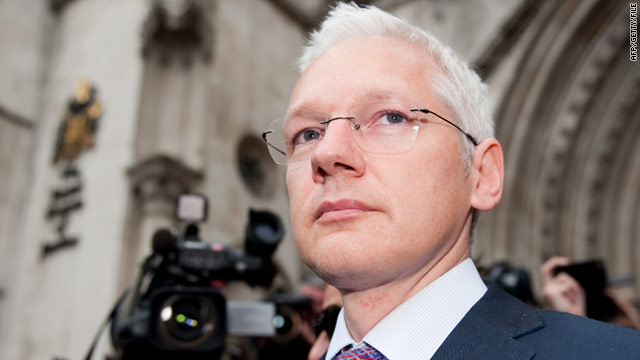WikiLeaks releases entire archive of U.S. embassy cables

- NEW: Reporters Without Borders suspends a WikiLeaks "mirror site" over concerns
- The documents first became accessible online after WikiLeaks lost control of them
- WikiLeaks has now thrown open the full, unredacted archive itself
- Newspapers condemn the move, saying confidential sources may be put at risk
London (CNN) -- WikiLeaks threw open the doors Friday to its archive of more than a quarter million secret U.S. diplomatic cables, unfiltered and unedited, exposing and possibly endangering confidential diplomatic sources.
The website made the controversial decision after losing control of the documents in a series of blunders.
WikiLeaks supporters posted the entire encrypted archive on the internet late last year. Separately, David Leigh, the investigative editor of the Guardian newspaper, formerly one of Wikileaks media partners, published the password to unlock the archive in his book "Inside WikiLeaks: Julian Assange's War on Secrecy".
Together, both pieces of information, unlocked the full trove of U.S. diplomatic cables, accessible to anyone on the web.
But WikiLeaks' decision to open its archive is likely to bring the cables to a much wider audience -- and has already sparked criticism that it will put people at risk.
A brief search through the cables shows that documents have not been redacted in any way. The names and other details of confidential diplomatic sources are on full display, despite being labelled with the instruction "strictly protect", including cables classified as "secret" or "confidential."
The Guardian, the New York Times, Der Spiegel and El Pais, four of WikiLeaks' former media partners, condemned the release.
In a joint statement they said: "We deplore the decision of WikiLeaks to publish the unredacted State Department cables, which may put sources at risk.
"Our previous dealings with WikiLeaks were on the clear basis that we would only publish cables which had been subjected to a thorough editing and clearance process.
"We will continue to defend our collaborative publishing endeavour. We cannot defend the needless publication of the complete data -- indeed, we are united in condemning it. Today's decision to publish by Julian Assange was his, and his alone."
Reporters Without Borders announced late Thursday it was suspending a WikiLeaks "mirror site" because of concerns over potential risks to sources.
In an editorial, it wrote that on launching the mirror site late last year, Reporters Without Borders "said it defended 'the free flow of information online and the principle of the protection of sources, without which investigative journalism cannot exist.'
"As the protection of sources is now in question, Reporters Without Borders has decided to suspend the site pending further clarification."
WikiLeaks posted Friday on Twitter: "Shining a light on 45 years of U.S. 'diplomacy', it is time to open the archives forever." The organization also gave full instructions on how to download all 251,287 cables.
WikiLeaks appealed for members of the public to "crowdsource" the cables and publish their findings on Twitter under the hashtag #wlfind. Crowdsourcing is the act of outsourcing tasks to an undefined, large group through an public call -- in this case to publish parts of the cables.
The reason, according to a statement posted by WikiLeaks on Twitter: "The entire world press does not have enough resources and there are substantial biases."
U.S. State Department Spokeswoman Victoria Nuland told CNN Thursday: "WikiLeaks did advise us of the impending release of information and of its intention to continue to release classified documents.
"We have made clear our views and concerns about illegally disclosed classified information and the continuing risk to individuals and national security that such releases cause.
"WikiLeaks has, however, ignored our requests not to release or disseminate any U.S. documents it may possess and has continued its well-established pattern of irresponsible, reckless, and frankly dangerous actions. We are not cooperating with them."



